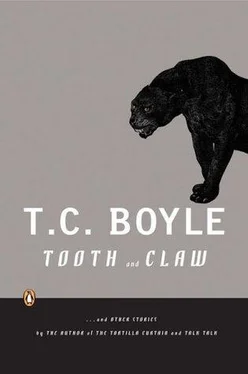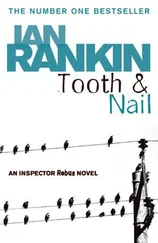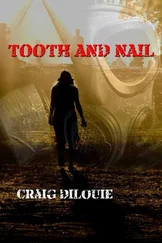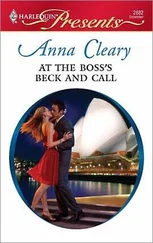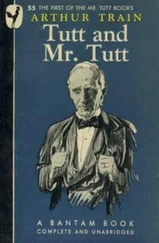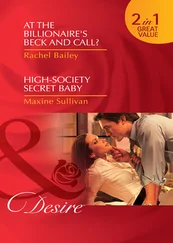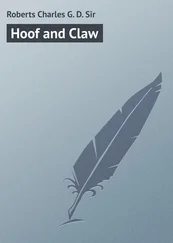The woman — she looked to be in her late twenties, her body squeezed into one of those luminous silk dresses the hostess in a Chinese restaurant might wear — showed no sign of recognition.
He gave her his name. “We had an appointment today,” he said, “—for one?” Still nothing. He wondered if she spoke English. “I mean, me and Mrs. Rastrow? You know Mrs. Rastrow? Do you work for her?”
She pressed a hand to her lips in a flurry of painted nails and giggled through her fingers, and the curtain dropped. She was just a girl, pretty, casual, and she might have been standing in the middle of her own dorm room, sharing a joke with her friends. “It’s just — you look like a potato peeler salesman or something standing there like that.” Her smile opened up around even, white teeth. “I’m Rose,” she said, and held out her hand.
There was a mudroom, flagstone underfoot, firewood stacked up like breastworks on both sides, and then the main room with its bare oak floors and plaster walls. A few museum pieces, tatted rug, a plush sofa with an orange cat curled up in the middle of it. Two lamps, their shades as thin as skin, glowed against the gray of the windows. Rose bent to the stove in the corner, opened the grate and laid two lengths of wood on the coals, and he stood there in the middle of the room watching the swell of her figure in the tight wrap of her dress and the silken flex and release of the muscles in her shoulders. The room was cold as a meat locker.
He was watching Rose, transfixed by the incongruity of her bent over the black stove in her golden Chinese restaurant dress that clung to her backside as if it had been sewn over her skin, and the old lady’s voice startled him, for all the pep talk he’d given himself. “You came,” she said, and there she was in the doorway, looking no different from the picture he’d held of her.
She waited for him to say something in response, and he complied, murmuring “Yes, sure, it’s my pleasure,” and then she was standing beside him and studying him out of her yellowed eyes. “Did you bring the papers?” she said.
He patted the briefcase. They were both standing, as if they’d just run into each other in a train station or the foyer at the theater, and Rose was standing too, awaiting the moment of release. “Rose,” she said then, her eyes snapping sharply to her, “fetch my reading glasses, will you?”
THE CAR HAD DEVELOPED a cough on the drive up from Boston, a consumptive wheeze that rattled the floorboards when he depressed the accelerator, and now, with the influence of the sea, it had gotten worse. He turned the key in the ignition and listened to the slow seep of strangulation, then put the car in gear, backed out from beneath the oak and made his hesitant way down the drive, wondering how much they were going to take him for this time when he brought it into the shop — if he made it to the shop, that is. There was no reward in any of this — he’d tried to keep the shock and disappointment from rising to his face when the old lady named her price — but at least, for now, there was the afternoon ahead and the rudimentary animal satisfaction of lunch, food to push into his maw and distract him, and he took the blacktop road back into the village and found a seat at the counter in the diner.
There were three other customers. The light through the windows was like concrete, like shale, the whole place hardened into its sediments. He didn’t recognize anyone, and he ate his grilled cheese on white with his head down, gathering from the local newspaper that the creatures had deserted the sea en masse and left the lobstermen scrambling for government handouts and the cod fleet stranded at anchor. He’d countered the old lady’s offer, but she’d held firm. At first he thought she hadn’t even heard him. They’d moved to the sofa and she was looking through the papers, nodding her head like a battered old sea turtle fighting the pull of gravity, but she turned to him at last and said, “My offer is final. You might have known that.” He fought himself, tried to get hold of his voice. He told her he’d think about it — sleep on it, he’d sleep on it — and have an answer for her in the morning.
It was raining again, a pulsing hard-driven rain that sheathed the car and ran slick over the pavement till the parking lot gleamed like the sea beyond it. He didn’t want to go back to the cottage in the motor court, not yet anyway — the thought of it entered his mind like a closed box floating in the void, and he had to squeeze his eyes shut to make it disappear — and he wasn’t much of a drinker, so there wasn’t any solace in the lights of the bar across the street. Finally, he decided to do what he’d known he was going to do all along: drive out to the house and have a last look at it. Things would have to be sold, he told himself, things stored, winnowed, tossed into the trash.
As soon as he pulled into the dirt drive that dropped off the road and into the trees, he could see he’d been fooling himself. The place was an eyesore, vandalized and vandalized again, the paint gone, windows shattered, the porch skewed away from the foundation as if it had been shoved by the hand of a giant. He switched off the ignition and stepped out into the rain. Inside, there was nothing of value: graffiti on the walls, a stained mattress in the center of the living room, every stick of furniture broken down and fed to the fire, the toilet bowl smashed and something dead in the pit of it, rodent or bird, it didn’t matter. He wandered through the rooms, stooping to pick things up and then drop them again. For a long while he stood at the kitchen sink, staring out into the rain.
The summer the Rastrows drowned, he’d lived primitive, out on the water all day every day, swimming, fishing, crabbing, racing from island to shore and back again under the belly of his sail. That was the year his parents had their friends from the city out to stay, the Morses — Mr. Morse, ventricose and roaring, with his head set tenuously atop the shaft of his neck, as if they’d given him the wrong size at birth, and Mrs. Morse, her face drawn to a point beneath the bleached bird fluff of her hair — and a woman who worked with his mother as a secretary, a divorcée with two shy pretty daughters his own age. And what was the woman’s name? Jean. And the daughters? He could no longer remember, but they wore sunsuits that left their legs and midriffs bare, the field of their taut browned flesh a thrill and revelation to him. He couldn’t look them in the face, couldn’t even pretend. But they went off after a week to be with their father, and the Morses — and Jean — stayed on with his parents, sunning outside in the vinyl lawn chairs, drinking and playing cards so late in the night that their voices — murmurous, shrill suddenly, murmurous again — were like the disquisitions of the birds that wakened him at dawn to go down to the shore and the boat and the sun that burned the chill off the water.
There was something tumultuous going on amongst them — all five of them — but he didn’t understand what it was till he looked back on it years later. It was something sexual, that much he knew, something forbidden and shameful and emotionally wrought. He lay in his bed upstairs, twelve years old and discovering his own body, and they shouted recriminations at each other a floor down. Mr. Morse took him and Jean out fishing for pollack one afternoon, the big man shirtless and rowing, Jean in the bow, an ice bucket sprouting a bristle of green-necked bottles between them. He fished. Baited his hook with squid and dropped the weighted line into the shifting gray deep. Behind him, Mr. Morse slipped his hand up under Jean’s blouse and they kissed and wriggled against each other until they couldn’t seem to catch their breath, even as he peered down into the water and pretended he didn’t notice. He remembered a single voice raised in agony that night, a voice caught between a sob and a shriek, and in the morning Mrs. Morse was gone. A few days later, her husband got behind the wheel of Jean’s car and the two of them pulled out of the drive. Nobody said a word. He sat with his parents at dinner — coleslaw, corn on the cob, hamburgers his father seared on the grill — and nobody said a word.
Читать дальше
